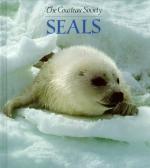|
This section contains 274 words (approx. 1 page at 300 words per page) |
Jacques Cousteau is the world's most acclaimed producer of underwater film documentaries. His adventurous spirit and undersea explorations, documented in over forty books, four feature films, and more than one hundred television programs, popularized the study of marine environments, and made him a household name in many parts of the world. As principal developer of the world's first aqualung diving apparatus and underwater film cameras, he opened up the world's waters to millions of scuba divers, film makers, and television viewers. A pioneering environmentalist, Cousteau brought home to the public mind the importance of the world's oceans and inspired generations of young scientists to become ecologists and oceanographers.
Jacques-Yves Cousteau was born on June 11, 1910, in the market town of St.-Andre-de-Cubzac, France. Following service in the French Navy, he became commander of the research vessel Calypso in 1950. The Calypso, where most of his subsequent films were produced, served as his base of operations. His first book, The Silent World, sold more than five million copies in 22 languages. A film of the same name won both the Palme d'Or at the 1956 Cannes International Film Festival and an Academy Award for best documentary in 1957. Television programs bearing the Cousteau name earned 10 Emmys and numerous other awards. In the 1950s and 1960s, Cousteau established a series of corporations and nonprofit organizations through which he financed his explorations, promoted his environmental opinions, and championed his reputation as the world's foremost underwater researcher and adventurer. He died in Paris on June 25, 1997.
Further Reading:
Madsen, Axel. Cousteau: An Unauthorized Biography. New York, Beaufort, 1986.
Munson, Richard. Cousteau: The Captain and His World. New York, Morrow, 1989.
|
This section contains 274 words (approx. 1 page at 300 words per page) |


